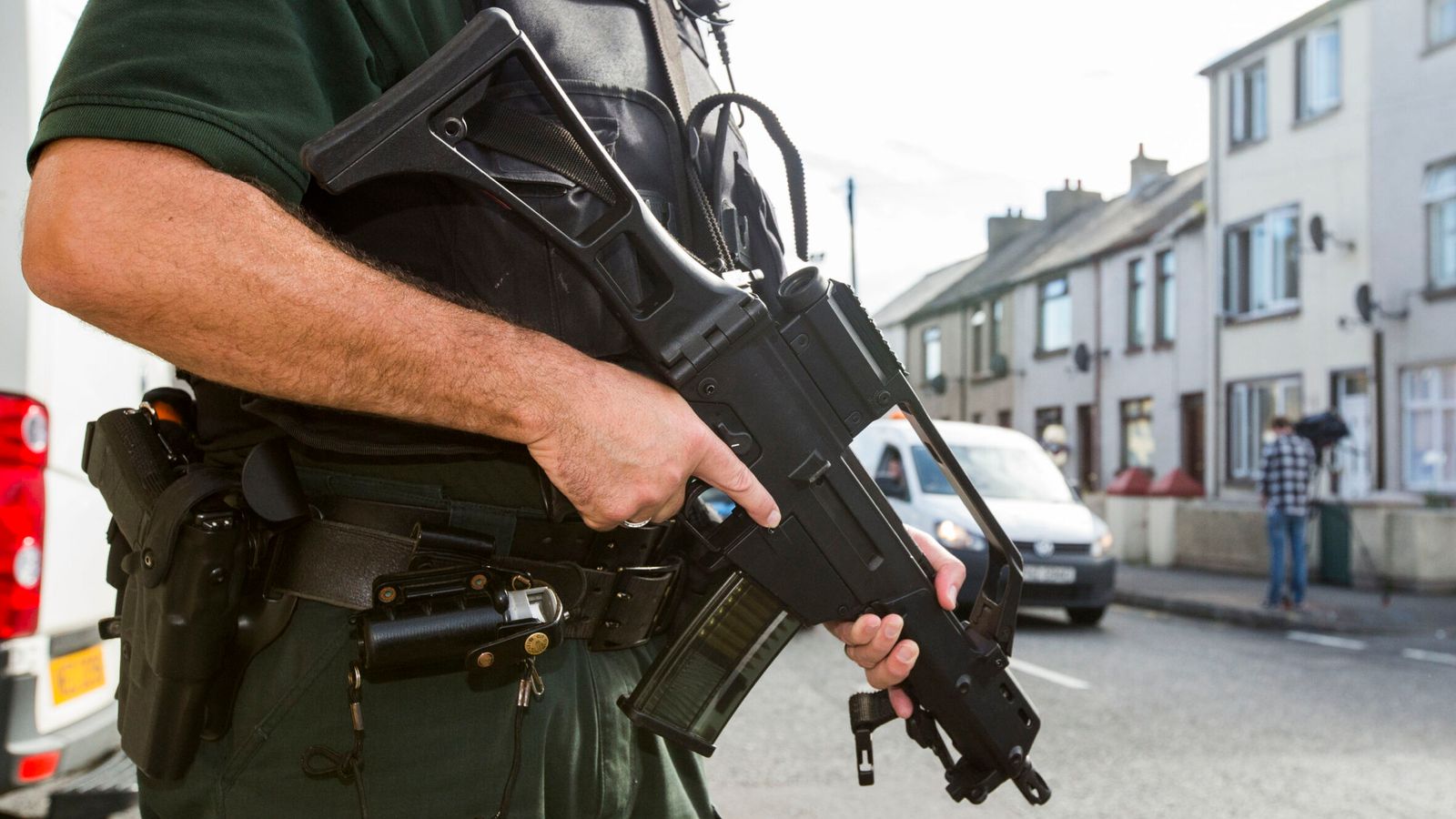The terror threat level in Northern Ireland has increased from “substantial” to “severe” meaning an attack is highly likely, the government has said.
Northern Ireland Secretary Chris Heaton-Harris told the House of Commons the decision was made by MI5, independent of ministers.
He cited a “small number” of individuals who remain determined to use “politically motivated violence” – pointing to the attempted murder of DCI Caldwell in February.
In a written ministerial statement he said: “MI5 has increased the threat to Northern Ireland from Northern Ireland Related Terrorism from ‘SUBSTANTIAL’ (an attack is likely) to ‘SEVERE’ (an attack is highly likely).
“The public should remain vigilant, but not be alarmed, and continue to report any concerns they have to the Police Service of Northern Ireland (PSNI).”
The threat level for the rest of the UK remains at “substantial”, meaning an attack is considered “likely”.
The UK has five terror threat levels which are:
Afghan refugees to get at least three months’ notice to move out of hotel accommodation from end of April
Prince Harry v Daily Mail publisher: Harry shares hug with Baroness Lawrence; private investigator statement released
‘Corrosive’ bullying culture at ‘toxic’ NHS trust could put patient care at risk, review finds after doctor’s death
• Low – an attack is highly unlikely
• Moderate – an attack is possible, but not likely
• Substantial – an attack is likely – this is the UK’s national threat level
• Severe – an attack is highly likely
• Critical – an attack is highly likely in the near future
Northern Ireland’s level was lowered from “severe” to “substantial” just over a year ago – the first time it had been altered since 2010.
The change comes ahead of a planned visit by US President Joe Biden to mark the 25th anniversary of the Good Friday Agreement next month, which brought peace to the region after decades of violence.
Addressing the increased terror threat, Chief Constable Simon Byrne said it is part of an “ongoing process of monitoring the threat level in Northern Ireland, which is conducted by MI5”.
He added: “We will relentlessly pursue those who seek to cause harm and terrorise our communities, and attack my officers and staff, and I pay tribute to them as they continue to deliver for our communities.
“I would also like to thank the community and political leaders of Northern Ireland for their overwhelming support for the Police Service in recent times.
“We will not be deterred from delivering a visible, accessible and responsive community focused policing service to keep people safe.”
Mr Caldwell was shot on 22 February after coaching a football training session at a sports complex in Omagh.
He was shot in front of his young son as he put footballs into the boot of his car, and he remains critically ill in hospital.
Senior Ireland correspondent
It took more than 20 years of fragile peace for the threat level to be downgraded to “substantial” in Northern Ireland.
The decision to raise it back to “severe”, meaning an attack is “highly likely”, will not have been taken lightly by MI5.
While based on the latest available intelligence, two other factors will have come into play as part of the threat review process.
The decision follows the attempted murder of DCI John Caldwell, who was critically injured in a gun attack last month.
But it comes just days before a series of high-profile events to mark the 25th anniversary of the Good Friday Agreement.
US President Joe Biden is due to visit Northern Ireland and the Republic, a significant security operation in any circumstances.
The main threat comes from dissident Irish Republicans, like the so-called New IRA, still pursuing Irish unity by violent means.
But loyalists, who bitterly oppose the Brexit border in the Irish Sea, have also threatened violence if it isn’t removed.
With no power-sharing government in place, there’s a political vacuum and there will always be those who seek to fill it.
Sir Jeffrey Donaldson, leader of Belfast’s DUP party, called on leaders in Westminster to make good on their promise to increase the number of PSNI officers following the increased terror threat level.
He said: “The government made a commitment to help fund 7,500 officers in the PSNI but have not yet made good on that promise.
“With police officers facing such a threat, now is the time for the government to provide that additional funding to ensure the PSNI has the full capacity to meet this threat.”
Sinn Fein vice-president Michelle O’Neill said: “Today’s announcement that the level of threat has been increased comes against the backdrop of the 25th anniversary of the signing of the Good Friday Agreement.
“A quarter century on there is no place or space for paramilitary groups in a modern, democratic society. They must go.”







